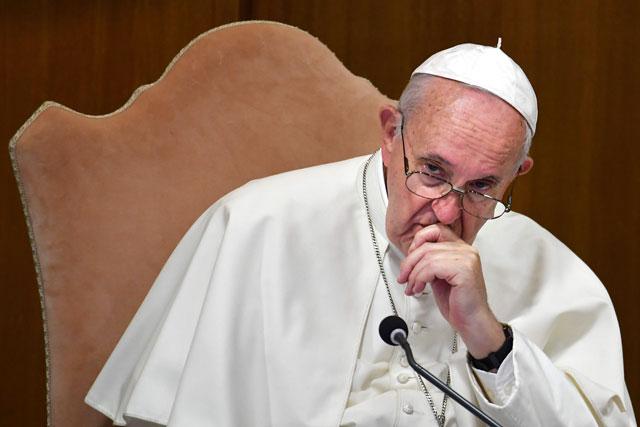- International News
- Tue-2020-06-02 | 03:42 pm

Convicted mobsters and those guilty of tax fraud are among a list of undesirables now unable to pocket contracts.
The Argentine Pontiff was elected in 2013 to put the Vatican's finances in order, but has met resistance from certain ministries reluctant to relinquish control over funds or shine a light on internal workings.
The law, published on Monday, is the result of four years of work and brings the Vatican into line with international standards.
It is "a not insignificant turn of events", Vatican expert Iacopo Scaramuzzi said on Twitter.
"It puts an end to the firmly established Vatican habit... of entrusting external contracts to relatives and friends of friends," he added.
The new standards of "transparency, control and competition in the procedures for awarding public contracts" will centralise expenditures, currently very fragmented, under two administrative bodies.
The changes will "significantly reduce the danger of corruption", Francis said in his written introduction to the law.
While the days of suspected mafia involvement in the Vatican's finances are long gone, the seat of the Catholic Church has found it difficult to shake off scandals completely.
A recent investigation uncovered possible corruption linked to Vatican real estate investments in London.
As well as excluding people convicted of ties to organised crime groups from bids, the law says the Vatican's selection for tenders must comply with ethical principles and avoid conflicts of interest.
Giuseppe Pignatone, a leading Italian anti-mafia expert appointed by the Pope in October to head up the Vatican's court, said the law aimed to achieve "significant savings" through competitive bidding.
"The theme of cutting expenses is very topical and important at this time — unfortunately destined to continue — of serious economic difficulties for the whole world, but also for the Holy See and the Vatican City State," he said.













